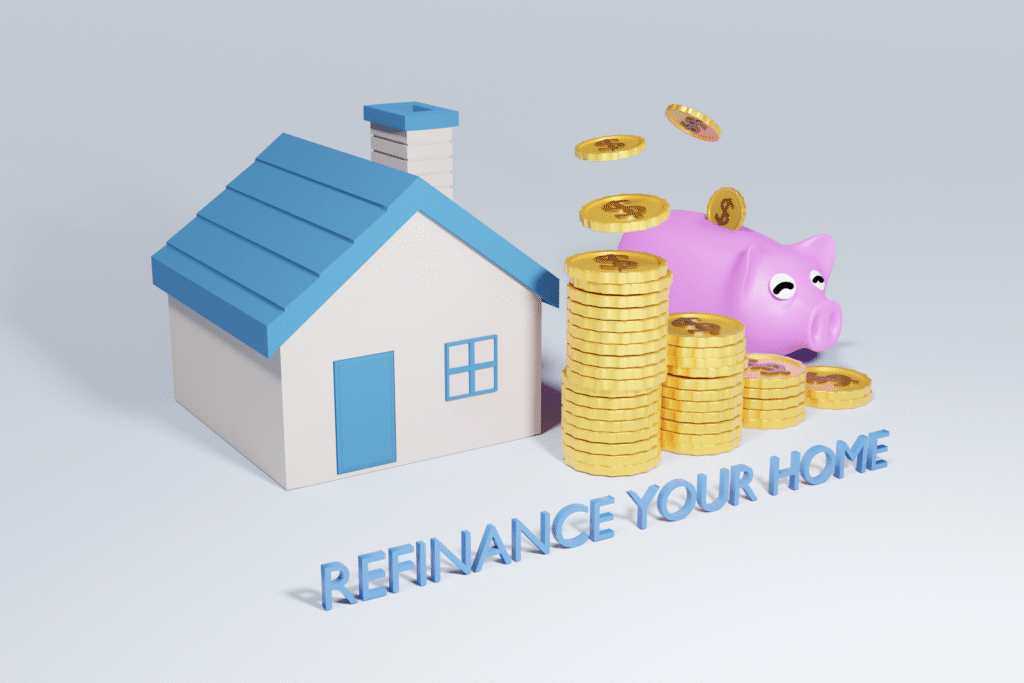What Seattle Investors Need to Consider
Refinancing rental property in 2026 is one of the biggest decisions Seattle landlords will face this year. With interest rates starting to cool off, many investors are wondering if now is the right time to refinance. The truth is that refinancing can strengthen your portfolio, but it can also strain your cash flow if the timing or loan structure is not right.
This article will help you understand what to look for before you refinance rental property in 2026 so you can make a decision that fits both your short-term needs and long-term investment goals.
1. Where are mortgage rates heading in 2026?
Mortgage experts predict that rates for investment properties will hover between 5.5 percent and 6.25 percent by mid-2026. That is a noticeable drop from the 6.5 to 7.5 percent range seen in 2023 and 2024.
If your current mortgage rate is above 7 percent, refinancing could improve your monthly payments and long-term returns. But remember that closing costs, loan term changes, and appraisals can offset the benefit if you do not plan carefully.
Before committing, calculate how long it will take to recover your refinance costs. You can use a simple break-even formula: refinance costs divided by monthly savings equals the number of months to recoup your investment.
2. Will refinancing rental property in 2026 improve your cash flow?
Many landlords refinance because they hope to lower their payment. However, refinancing can still increase your expenses if you shorten your loan term, pull cash out, or roll fees into the new loan.
Washington’s rent cap laws, which limit rent increases, mean you cannot rely on major rent jumps to cover new loan costs. Ask yourself these questions before refinancing:
– Does this refinance reduce my total monthly expenses?
– Can I still maintain positive cash flow if rent only increases within the legal cap?
– How long will it take before the refinance pays off?
If the answers support your financial goals, refinancing could be a smart long-term move.
3. Do you have enough equity to make refinancing worth it?
To refinance rental property in 2026, most lenders require at least 25 to 30 percent equity. That means your property must appraise high enough to support the new loan.
If you purchased your Seattle investment property before 2022, you likely have strong equity. But if you bought during the 2022–2024 market peak, you may find that rising interest rates and slower appreciation have reduced your refinance options.
Check with a mortgage professional or property manager to estimate your property’s current market value before ordering a formal appraisal.
4. Are you considering a cash-out refinance?
A cash-out refinance can help you access your home’s equity to reinvest or pay off high-interest debt. Many Seattle landlords use this strategy to fund renovations, expand their portfolios, or upgrade properties to meet new market standards.
However, a cash-out refinance restarts your mortgage term and can increase your monthly payments. Alternatives like home equity lines of credit (HELOCs) or portfolio loans can give you access to funds without replacing your first mortgage, but they often come with variable rates that could rise over time.
The best approach depends on your goals. If the money you pull out will earn more than it costs to borrow, a refinance may make sense. If not, it might be better to wait.
5. What is your long-term investment strategy?
Refinancing rental property in 2026 only makes sense if it aligns with your broader financial plan. If you plan to sell in the next two years, refinancing may not give you enough time to recover the costs.
If you are holding long-term, refinancing can help you:
– Lower your lifetime interest payments
– Secure a stable fixed rate
– Improve cash flow for better portfolio stability
– Access capital for new investment opportunities
Refinancing should always support a specific outcome, such as freeing up equity for expansion or improving your debt-to-income ratio, not just reducing your rate on paper.
Ready to Review Your Refinance Strategy?
Refinancing rental property in 2026 should support your cash flow, long-term ROI, and overall investment plan. If you want expert guidance tailored to your Seattle portfolio, SJA Property Management is here to help.
Our team can:
- Review your rental income and expenses
- Model how different refinance scenarios impact your cash flow
- Help you understand rent cap limitations
- Provide market-backed insights for long-term planning
Get a free rental analysis and see whether refinancing in 2026 will strengthen your investment strategy.
Visit SJA Property Management to get started.
Disclaimer
This article is for informational purposes only and should not be considered financial, legal, or investment advice. Mortgage rates, state laws, and lending requirements may change. Please consult a licensed mortgage advisor, CPA, or financial professional before making any refinance decision. SJA Property Management does not provide lending or legal services.






